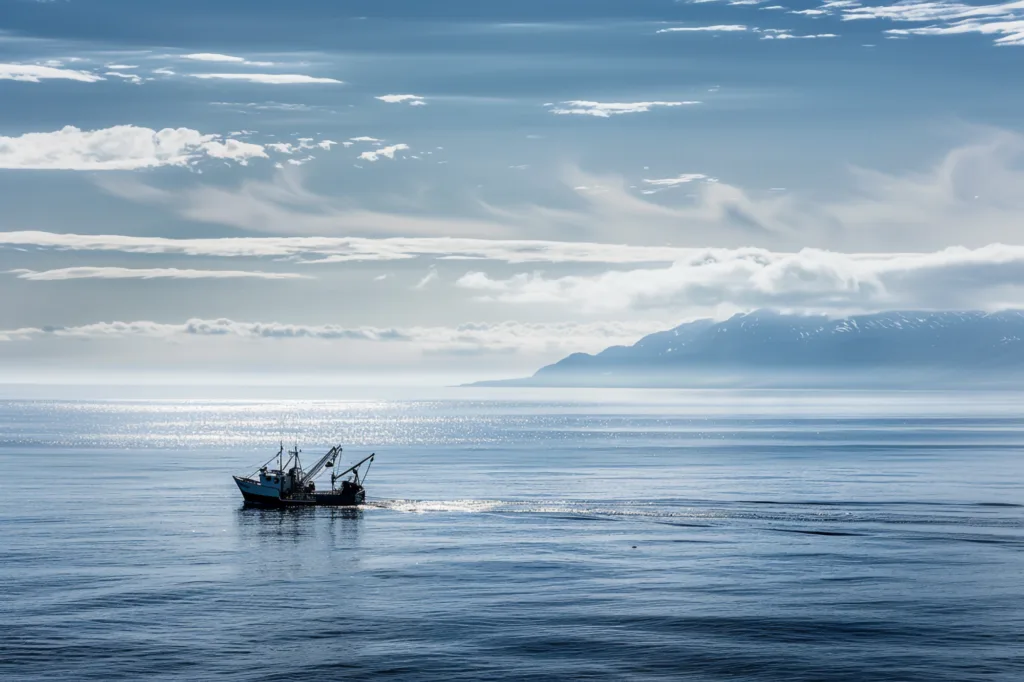Sustainable fishing is essential for the health of our oceans and marine ecosystems and for the future of our planet. By adopting eco-friendly fishing practices, we can actively contribute to ocean conservation, support ethical seafood sourcing, and preserve marine biodiversity. In this article, we will explore three reasons why it is imperative to prioritize sustainable fishing practices.
The Importance of Ocean Conservation
The importance of ocean conservation cannot be overstated when it comes to fishing. Unsustainable fishing methods have had a devastating impact on the health of our marine ecosystems. Overfishing, destructive fishing practices, and bycatch are just a few examples of the detrimental effects that traditional fishing methods have on our oceans.
With mindful fishing practices, we have the power to protect and restore the delicate balance of ocean ecosystems. Sustainable fishing techniques prioritize the long-term health of fish stocks and the preservation of marine biodiversity. These practices aim to minimize harm to marine life and habitats, promoting a more resilient and sustainable future for our oceans.
One of the key pillars of ocean conservation is responsible seafood sourcing. Consumers play a critical role in driving positive change and supporting ethical fishing practices by choosing sustainable seafood. Sustainable fishing not only ensures that we have an abundant supply of seafood for future generations, but it also helps preserve the livelihoods of coastal communities that rely on healthy marine ecosystems.

Ethical Seafood Consumption
When it comes to seafood consumption, being ethical means enjoying delicious dishes while making responsible choices that promote the sustainability of our oceans. Ethical seafood consumption is closely tied to the practices of the sustainable fishing industry and the responsible sourcing of seafood.
Responsible seafood sourcing refers to the careful consideration of how seafood is caught, farmed, and sourced. It involves supporting fisheries and aquaculture operations that prioritize sustainable fishing techniques and minimize negative impacts on marine ecosystems. By choosing seafood from responsibly sourced fisheries, consumers can play a significant role in driving positive change towards a more sustainable future.
One of the key factors in ethical seafood consumption is the use of sustainable fishing methods. Selective fishing and gear modification techniques are examples of sustainable practices that help reduce bycatch and protect vulnerable species. These methods ensure the long-term viability of our fish stocks and contribute to the preservation of marine biodiversity.
The sustainable fishing industry plays a major role in ensuring that seafood is sourced responsibly. By adhering to strict standards and certifications such as the Marine Stewardship Council (MSC) or the Aquaculture Stewardship Council (ASC), the industry demonstrates its commitment to environmental sustainability and responsible practices.
As consumers, we have the power to positively impact the fishing industry by choosing responsibly sourced seafood. By demanding sustainable seafood options, we can encourage the industry to prioritize ethical practices and protect the health of our oceans.
Preserving Marine Biodiversity
In the ongoing efforts to protect and conserve our oceans, sustainable fishing practices play a crucial role in preserving marine biodiversity. By employing these practices, we can help ensure the long-term health and abundance of diverse marine species and ecosystems.
One of the key components of sustainable fishing is the use of sustainable fishing techniques. These techniques include selective fishing and gear modification, which minimize the impact on non-target species. Selective fishing involves using specific gear and methods to target only the intended species, helping to avoid the unnecessary capture and release of other marine organisms.
Selective fishing is essential for preserving marine biodiversity, as it allows for the reproduction and growth of non-target species.
Gear modification is another important technique that promotes sustainable fishing. By making adjustments to fishing gear, such as using escape panels or modifying net designs, fishermen can minimize bycatch and reduce harm to marine biodiversity. These modifications allow non-target species to escape from fishing gear, reducing their mortality rates and safeguarding their populations.
Gear modification acts as a protective measure, preserving the delicate balance of marine ecosystems and contributing to the conservation of marine biodiversity.
Furthermore, sustainable aquaculture, also known as responsible fish farming, plays a significant role in marine biodiversity preservation. Through sustainable aquaculture practices, fish and other seafood can be produced in a controlled and environmentally friendly manner. By reducing the reliance on wild fish populations, sustainable aquaculture helps alleviate the pressure on marine ecosystems and their biodiversity.
Sustainable aquaculture provides an alternative to wild fish harvesting, reducing the impact on marine biodiversity while meeting the global demand for seafood.
Marine stewardship and certifications also play a critical role in ensuring sustainable fishing practices. These initiatives promote responsible and sustainable fishing by setting standards and guidelines that fishermen and seafood producers must adhere to. Certifications, such as the Marine Stewardship Council (MSC) certification, provide an assurance to consumers that the seafood they purchase comes from sustainable sources and is harvested in a way that preserves marine biodiversity.
Marine stewardship and certifications contribute to the preservation of marine biodiversity by endorsing sustainable fishing practices and empowering consumers to make informed choices.

Conclusion
In conclusion, sustainable fishing practices play a crucial role in promoting eco-friendly fishing, ocean conservation, ethical seafood consumption, and the preservation of marine biodiversity. By prioritizing sustainable fishing techniques, we can ensure the long-term health and sustainability of our oceans and marine ecosystems.
Through eco-friendly fishing practices, we can minimize the negative impact on marine environments, such as overfishing, habitat destruction, and bycatch. By using selective fishing methods and gear modifications, we can target specific species while minimizing the capture of non-target species, thereby preserving the delicate balance of marine biodiversity.
Additionally, supporting responsible seafood sourcing and the development of a sustainable fishing industry is essential for ethical seafood consumption. By choosing seafood from certified sustainable sources, consumers can make a difference and contribute to the preservation of our oceans’ health.
Ultimately, the future of our oceans and marine life depends on our commitment to sustainable fishing, including those provided by daytona fishing charters. By embracing eco-friendly fishing practices, we can ensure a healthier and more sustainable planet for future generations.
